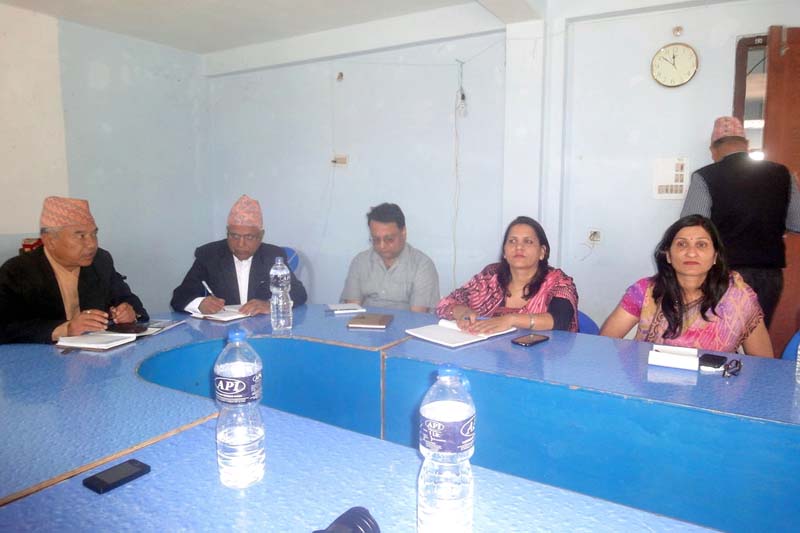MoPR working on amendment to transitional justice act
Kathmandu, December 26
The Ministry of Peace and Reconstruction has expedited the process of amending the Enforced Disappearances Enquiry, Truth and Reconciliation Commission Act 2014 that governs the Truth and Reconciliation Commission and the Commission of Investigation on Enforced Disappeared Persons.
The ministry had on December 12 forwarded a letter to the two transitional justice bodies seeking their inputs on the draft amendment to the act. Both the transitional bodies have already sent a reply to the letter. While the CIEDP has sought a three-year extension of its tenure, the TRC had replied to the ministry stating that its official position had not changed on its eight-point amendment proposal that it had forwarded to the government in December 2015.
The amendment to the act is vital because it only allows a one-year term extension of the transitional justice mechanisms and that has already been done. The tenure of the commissions, which were formed in 2015 with a two-year term and awarded a one-year extension in February, expires on February 10 next year.
The ministry’s Law and Communications Division has been working on the draft amendment keeping in mind that these two bodies need some more time to complete their job, according to the ministry’s Spokesperson Ram Prasad Bhattarai. “It is an understood matter that these two commissions cannot collapse midway,” he said.
Bhattarai said ‘high-level consultations’ were under way on inputs forwarded by the TRC and CIEDP on the draft amendment and by how many years their tenure should be extended. “Two things are almost certain: The tenure will be extended and the amendment will incorporate the Supreme Court directives,” he said, adding that they would soon reach a conclusion on the issue after deliberations.
The Supreme Court had issued a verdict in February, 2015, striking down the amnesty provision in the act and seeking clarity in provisions related to ‘serious crime’, ‘serious human rights violation’ and ‘other crimes of serious nature’. The court had also ordered to criminalise torture and disappearances.
Given both these commissions are hamstrung by crunch of human and financial resources and the government’s failure to formulate legislations in line with the Supreme Court order, they have said a mere extension to the tenure is worthless.
TRC Chairman Surya Kiran Gurung said unless the act was amended in line with the SC verdict and TRC’s eight-point amendment proposal, and unless the commission was equipped with necessary resources, an extension of the deadline would make no sense.
The CIEDP has also been demanding for long that, among other things, the government criminalise disappearances and bring clarity to provisions related to the transfer of property of the disappeared to their family members. “So the CIEDP’s official position is that a mere extension of the tenure without addressing these [above mentioned] issues will be worthless,” CIEDP Spokesperson Prof Bishnu Pathak had told The Himalayan Times last week.
Conflict victims also said that term extension alone was not going to solve the problem and the government should work to make these two mechanisms ‘functional’ and equip them with necessary resources. Suman Adhikari, chairman of Conflict Victims Common Platform, said the government should work to make the commissions accountable and transparent, besides amending the act in line with the
SC verdict.
However, amendment to the act is likely to face some challenges because the amendment bill needs to be endorsed by the Parliament, which is currently suspended. And given the current political impasse over the National Assembly Election Ordinance, it will take some more time for the next Parliament to take shape. But the government will still have the option of issuing an ordinance.
Peace Ministry Spokesperson Bhattarai, however, said since the amendment bill would not be that lengthy, no more than two pages, even the next Parliament could endorse it on time. “But it will depend on how early the new government will be formed,” he said. “And, the option of ordinance issuance is always there.”
The two commissions have received around 63,000 complaints of conflict-era human rights violations.
READ ALSO:






